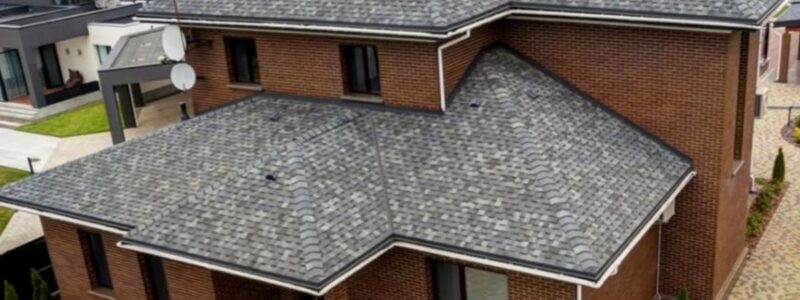
In 2023, the main areas of sales of Sweetondale products will be retail sales and low-rise housing construction, the company’s press service told Interfax-Ukraine.
The building materials manufacturer Sweetondale owns three plants in Ukraine that produce roofing and thermal insulation materials: a mineral insulation plant in Cherkasy, a polymer insulation plant, and a bitumen-polymer roll materials plant in Kamianske.
“Since the beginning of the full-scale invasion, we have seen a significant redistribution in sales channels. Previously, our main focus was on industrial and civil construction, but now retail sales (42%) and sales to low-rise cottage construction projects (47%) have come to the fore. The share of the professional segment has almost halved and now does not exceed 10%, but we hope that with the active launch of recovery programs and the emergence of new projects, this share will grow,” said Iryna Konotoptseva, Head of Marketing at Sweetondale.
According to the company’s analysts, just like before the war, Sweetondale holds leading positions in each of its production areas. Namely, mineral insulation accounts for approximately 47% of the market, polymer insulation for approximately 46%, and bitumen roll materials for approximately 55%.
Since the beginning of the full-scale invasion, the cost of polymer insulation and bitumen rolls, which have an imported raw material component of more than 80%, has increased significantly, by 40-45%.
“The main factors for this were the rising cost of raw materials, energy, fuel and the increased logistics leverage for the delivery of raw materials,” Konopoptseva explained.
“At the same time, the price of mineral insulation decreased by about 10%. This was achieved by partially using domestic raw materials.
“One of the main issues for us in recent years has been finding new suppliers of raw materials, and we have accepted this challenge. Currently, we supply the majority of raw materials for our products from Europe,” Konotoptseva said.
Logistics within the country has also risen significantly. Sweetondale delivers building materials throughout Ukraine, and the cost of transportation companies’ services has increased significantly. Konoptseva said that since the beginning of the war, the tariff for delivery from Kamianske to Kyiv and Uzhhorod has increased by 43%, and from Kamianske to Odesa by 54%.
The expert noted the high demand for manufactured goods from Ukrainians.
“Ukrainians continue to prefer domestic producers. In addition to the obvious support of the Ukrainian manufacturer, this is also a big benefit for customers, as traditionally European manufacturers are more expensive, and the logistics of these goods are longer and more expensive. Thus, according to our estimates, the share of Ukrainian producers in mineral insulation is 80%, in polymer insulation – 88%, and in rolled materials – 90%,” she said.
As for government programs (restoration, energy efficiency, etc.), their impact on the market is still insignificant.
“There are quite a few programs, but, in our opinion, they are still unstructured and the conditions for participation in them are not always transparent for business. In addition, we can note that such programs often use products with low characteristics,” Konotoptseva said.
According to Opendatabot, the authorized capital of Zavod “Sweetondale” LTD (Zavod “Sweetondale” LTD, EDRPOU code 32944149) is UAH 13.5 million, in 2022 the company received revenue of UAH 940.074 million, net profit amounted to UAH 112.112 million.
Sweetondale was founded in 2012 by Gary Alan Stern. Initially, it specialized in engineering and leasing of industrial equipment. Negotiations on the acquisition of plants owned by Russia’s Technonikol began in 2015 and ended in February 2018.